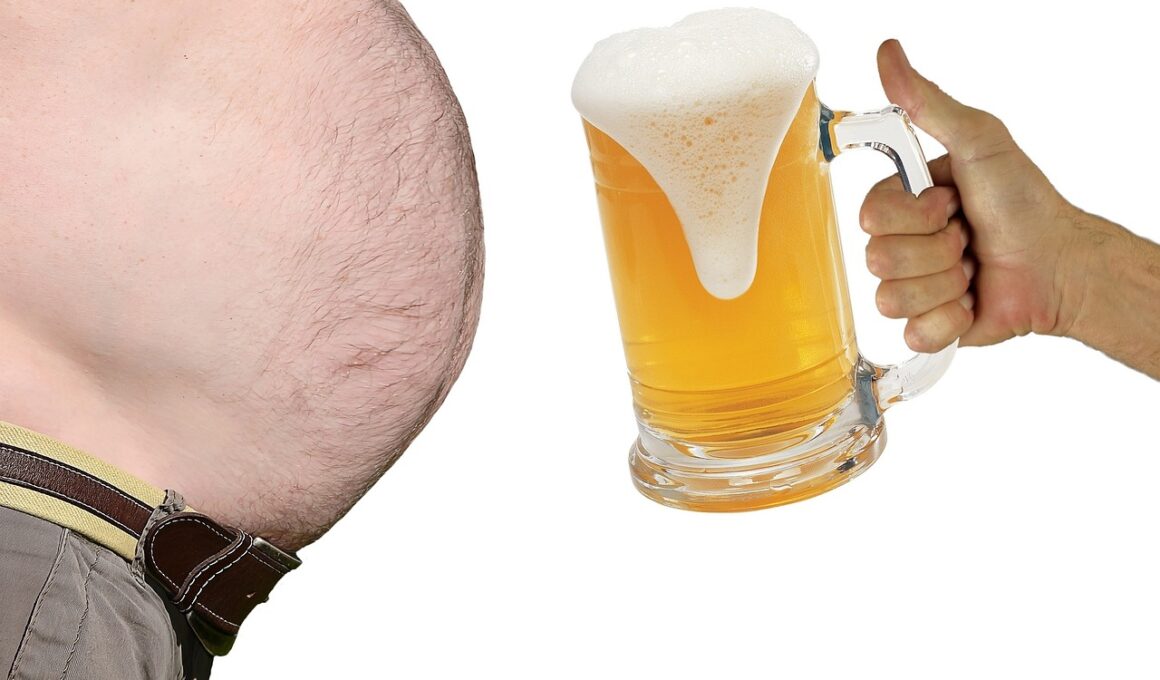Alcohol and Bootcamp: What You Should Know About Nutrition Impact
Many bootcamp trainees are motivated to transform their fitness levels, with strict workouts and tailored diets. However, alcohol consumption can significantly impact nutritional goals and overall performance. When consumed, alcohol affects metabolism and alters how the body processes nutrients, leading to potential setbacks in training outcomes. It’s essential for trainees to understand the implications of alcohol on their bodies, particularly during challenging training programs. The empty calories in alcohol may hinder progress, making it more difficult to achieve desired fitness goals.
Furthermore, alcohol consumption can result in dehydration, which is detrimental for anyone participating in intense physical exertion. Dehydration can disrupt recovery and lead to diminished physical performance during bootcamp. It’s crucial for trainees to prioritize hydration, especially after consuming alcoholic beverages. Staying well-hydrated is vital for muscle recovery and optimal workout performance. The body requires ample hydration to support essential physiological functions during high-intensity training, thus reinforcing the need for moderation when it comes to alcohol consumption among bootcamp trainees.
Another consideration is the impact of alcohol on sleep patterns. Poor sleep can lead to reduced athletic performance and hinder recovery processes. Bootcamp athletes need quality sleep to repair muscles and replenish energy stores, yet alcohol may disrupt this crucial restorative process. Limiting alcohol intake may enhance sleep quality, leading to improvements in training results. Additionally, adequate rest contributes to mental focus and motivation, essential elements for success in a bootcamp environment. Therefore, managing alcohol consumption is crucial for maintaining peak performance.
Nutrition Tips for Bootcamp Trainees
In light of alcohol’s impact, bootcamp trainees should embrace healthy nutritional strategies for overall success. Prioritizing whole foods rich in nutrients is fundamental for fueling intense workouts. Incorporate a balanced diet consisting of lean proteins, whole grains, vegetables, and healthy fats. Keeping blood sugar levels stable with regular meals can enhance energy and performance. When working hard in bootcamp, proper nutrition will support not only endurance but also strength and recovery. Staying committed to a nutritious diet may also minimize cravings for excessive alcohol.
Moreover, focus on consuming essential vitamins and minerals that support body function during training. Nutrient-dense foods can bolster immune response, maintain energy levels, and assist recovery after workouts. Beverage choices should emphasize hydration, with an emphasis on water intake. Complementing nutrition with electrolytes after intense sessions can aid in recovery. Consider adding sports drinks or coconut water after workouts to replenish lost electrolytes without the drawbacks of alcohol. Understanding smart beverage choices can further enhance training outcomes in bootcamp settings.
In addition to nutrition and hydration, bootcamp trainees should consider moderating alcohol intake to maintain optimal fitness levels. Reducing frequency and quantity can make a significant difference in training efficacy. Even when attending social events, choosing lighter alternatives—or abstaining altogether—can protect progress. Prioritize goals by thinking critically about beverage choices during gatherings. This proactive approach will help safeguard your progress while still enjoying social experiences. Accountability with friends can also present encouragement in moderation or finding suitable alternatives to alcoholic beverages.
Mindfulness and Recovery
The last thing bootcamp trainees should consider is the importance of recovery in their training routines. Incorporating rest days, active recovery, and flexibility exercises into schedules is essential for overall progress. Adequate recovery enables muscles to repair and helps prevent injury. Mindful practices, such as yoga and meditation, can ease stress and improve overall well-being, resulting in positive training experiences. Staying focused on recovery allows bootcamp participants to avoid fatigue and burnout, as well as maintain sustained energy levels throughout training.
Finally, remember that every decision in nutrition contributes to training results. Alcohol impacts more than just caloric intake; it influences hydration, sleep, and overall health, all crucial for success. Bootcamp trainees should cultivate awareness regarding their alcohol consumption and prioritize goals. Each small change in behavior, including nutritional strategies, may lead to substantial advancements in performance and results. Having a supportive community around can empower individuals to stay committed to their fitness journeys and embrace healthier habits.


